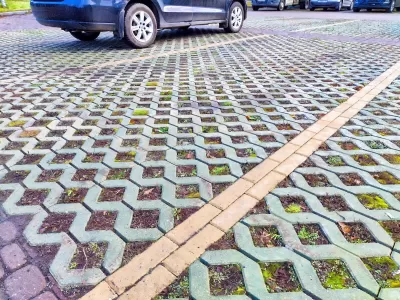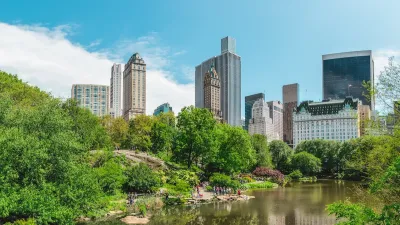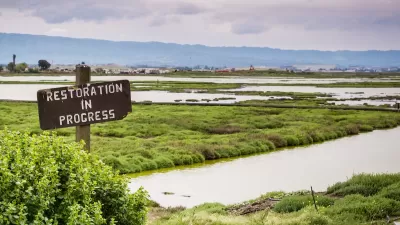Cities are increasingly adopting nature-based solutions like floodable parks and green roofs to combat flooding, offering cost-effective, multifunctional benefits while requiring careful planning and integration with traditional infrastructure.

In the face of increasingly severe and frequent flooding due to climate change, cities are turning to nature-based solutions like floodable parks, green roofs, and wetlands to absorb and slow water runoff. Traditional gray infrastructure, such as concrete channels and underground tanks, often exacerbates flood impacts by quickly funneling water without additional storage options. As reported by Natalie Donback, examples from Europe and Southeast Asia demonstrate the advantages of nature-based solutions, such as Valencia (Spain)'s need for updated infrastructure to manage urbanization and Bangkok (Thailand)'s Chulalongkorn University Centenary Park, which combines flood management with recreational and ecological benefits.
Nature-based solutions offer broader advantages beyond flood protection, including biodiversity enhancement, recreational spaces, and climate adaptation. Cities like Copenhagen (Denmark), which implemented green roads and floodable parks, have shown how these systems can replace outdated methods and provide co-benefits like improved mental well-being and water quality. Despite these advantages, challenges like limited urban space, the complexity of cost-benefit calculations, and unintended consequences like increased mosquito habitats or rising housing costs require careful planning and regulation.
Although no single solution can address all flooding challenges, integrating nature-based approaches with traditional infrastructure offers a balanced strategy. Studies show these solutions are on average 42 percent cheaper and create 36 percent more value than conventional gray systems, but their implementation demands long-term thinking and collaboration among governments, planners, and communities. By rethinking urban spaces and prioritizing sustainable solutions, cities can better prepare for extreme climate events while creating healthier, more resilient environments.
FULL STORY: How Cities Are Using Nature-Based Solutions to Tackle Floods

Maui's Vacation Rental Debate Turns Ugly
Verbal attacks, misinformation campaigns and fistfights plague a high-stakes debate to convert thousands of vacation rentals into long-term housing.

Planetizen Federal Action Tracker
A weekly monitor of how Trump’s orders and actions are impacting planners and planning in America.

Chicago’s Ghost Rails
Just beneath the surface of the modern city lie the remnants of its expansive early 20th-century streetcar system.

Bend, Oregon Zoning Reforms Prioritize Small-Scale Housing
The city altered its zoning code to allow multi-family housing and eliminated parking mandates citywide.

Amtrak Cutting Jobs, Funding to High-Speed Rail
The agency plans to cut 10 percent of its workforce and has confirmed it will not fund new high-speed rail projects.

LA Denies Basic Services to Unhoused Residents
The city has repeatedly failed to respond to requests for trash pickup at encampment sites, and eliminated a program that provided mobile showers and toilets.
Urban Design for Planners 1: Software Tools
This six-course series explores essential urban design concepts using open source software and equips planners with the tools they need to participate fully in the urban design process.
Planning for Universal Design
Learn the tools for implementing Universal Design in planning regulations.
planning NEXT
Appalachian Highlands Housing Partners
Mpact (founded as Rail~Volution)
City of Camden Redevelopment Agency
City of Astoria
City of Portland
City of Laramie





























